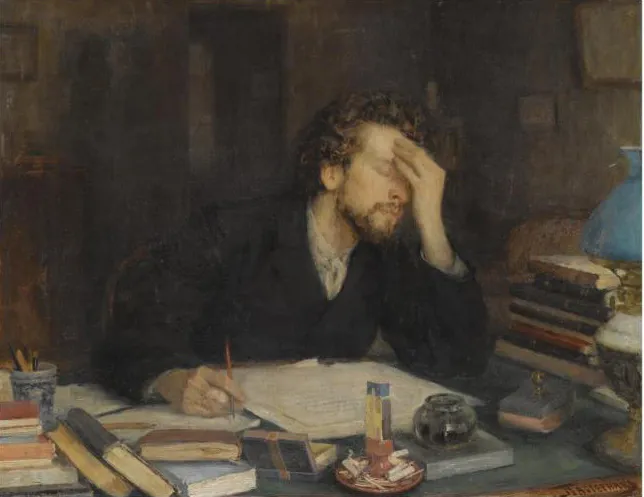Writers choose pain; Open-source infrastructure; Remembering Shel Israel: Newsletter 13 August 2025

Newsletter 106: Writing incurs pain, but it’s up to you which pain to suffer and when. Plus, a new survey on AI and the Writing Profession, Bookshop.org surges, three people to follow, and three books to read.
Writing? Choose your pain.
Writing, like anything else that requires effort and growth, involves pain. The good news is, you get to choose which pain to suffer. The bad news is, most people don’t even know they’re making a choice.
If you choose to write every day, you’ll experience the pain of losing part of your day. If you don’t, your pain will arrive when, out of practice, you must painstakingly write clunky prose.
If you write factual content, you can choose the pain of spending hours on research. Or you can skip that, and instead experience the pain of writing that lacks credibility.
You can choose the pain of writing that reveals your personal challenges, failures, and experiences to strangers. Or you can avoid that agony, and instead experience the pain of writing that’s neither relatable nor inviting.
You can begin with the painful process of approaching folks for case study stories, and suffering repeated rejections. Or you can avoid the pain of collecting stories, and instead experience the humdrum ache that comes from prose that lacks relatable people in interesting narratives.
If you have to write something big like a book, you can choose the pain of spending hours planning up front. If you’d rather avoid that effort, you can instead experience the pain of the seat-of-the-pants writer — the pantser — who writes a big collection of incoherent, random content that demands arduous rewrites.
You can experience the endless exasperation of trying to title your book in a way that’s clever, catches people’s attention, and fits the subject. Or, give up and choose a bland title that fails to do justice to your work and impairs word-of-mouth.
And you can invest in the endless tedium of planning book promotion and launch, repetitively attempting strategies that might get some readers to read and talk about your book. The alternative, of course, is to watch your work sink out of the public consciousness without a trace, leaving behind the unendingly dull feeling of lost opportunity.
It’s never effortless. It’s never painless. It’s always tempting to avoid the immediate pain and do what seems easiest. Just know that you can’t avoid pain forever. The pain that will eventually arrive is best classified as regret. And unlike the pain of practice, planning, and research, the pain of regret persists forever.
News for writers and others who think
How do writers feel about AI? Is it impacting their job prospects? Is it making them more productive? Please spend 15 minutes to take the “AI and the Writing Profession” survey and make yourself heard on this essential topic — whether you’re an AI user or not. The survey is a project I’ve undertaken with the support and collaboration of Gotham Ghostwriters. I’ll be sharing results in this space once the data analysis is complete.
Anthropic (parent company of AI tool Claude) has lost its appeal and will soon be going on trial for stealing authors’ works for training purposes.
Dries Buytaert suggests the fascinating idea of investing in open-source as public infrastructure. He’s swimming against the tide as government decrease public spending — but it seems to me that such investments could have major long-term benefits for humanity.
Bookshop.org, the nonprofit bookstore-supporting alternative to the Amazon bookstore, grew 65% in the first half of this year compared to the same period last year (Publisher’s Weekly, subscription link). And 5% of its revenues now come from its new ebook platform.
Please spare a thought for the family of Shel Israel, a brilliant author and really nice guy who today has succumbed to injuries sustained as a pedestrian in a vehicle accident in Florida. It makes me sad to think of a world that doesn’t include Shel.
Libraries in nine Florida counties pulled books off the shelves, fearful of action according to the state’s book-banning laws.
Three people to follow
Nicholas Thompson, CEO of The Atlantic, engaged in essential discourse on the American experience
Sarah Wilson, pioneering serialized book publishing on SubStack
Kevin Maney, author and thinker looking at the really big picture
Three books to read
You Already Know: The Science of Mastering Your Intuition by Laura Huang (Portfolio, 2025). Cultivating your gut feel into a powerful decision-making skill.
Age of Context: Mobile, Sensors, Data and the Future of Privacy by Robert Scoble and Shel Israel (CreateSpace, 2013). A good example of Shel’s best work: a visionary take that anticipated much of what’s happening right now. I edited this book, and I think Shel and I deeply impressed each other throughout that process.
Catching Cheats: Everyday Forensics to Unmask Business Fraud by Erik Lie (Berrett-Koehler, 2025). A dramatic story of using data to catch corrupt Wall Street operators.
So sorry to hear the news about Shel.
“Unlike the pain of practice, planning, and research, the pain of regret persists forever.”
Wow! Is this ever true!